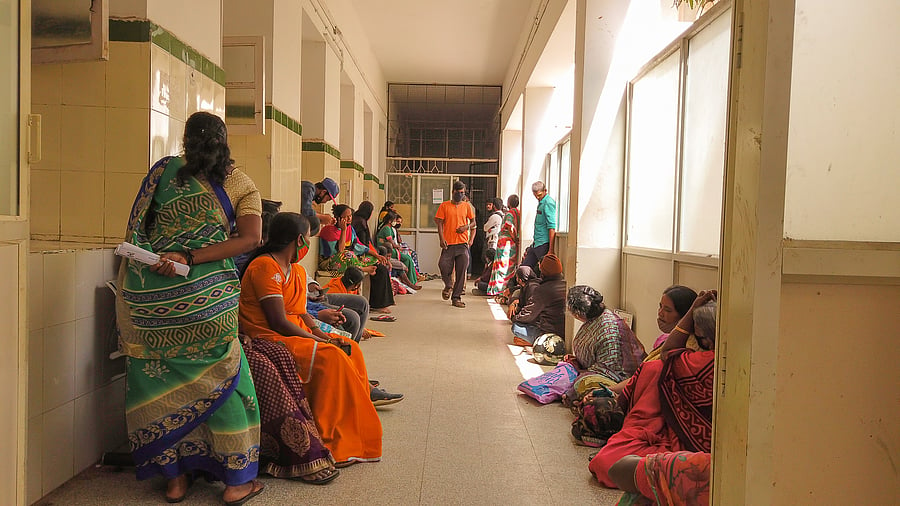
Representative image of a hospital in India
Credit: iStock Photo
Bengaluru: A recent circular from the Karnataka government has asked eligible private hospitals to seek accreditation to offer healthcare services to central government employees and beneficiaries under the Central Government Health Scheme (CGHS).
Issued by the state government’s Commissionerate of Health and Family Welfare Services, the circular references Section 11 of the Karnataka Private Medical Establishments (KPME) Act, 2007, stipulating that "every private medical establishment shall actively participate in the implementation of all national and state health programmes in such manner as the state government may specify from time to time”.
The CGHS scheme covers serving and former Members of Parliament, central government employees and pensioners, freedom fighters, retired Supreme Court judges, and all their dependents.
Private hospitals are invited to submit proposals for empanelment as Health Care Organisations (HCOs) to the nodal officer. Once empanelled, they are expected to deliver healthcare services at revised rates outlined by the scheme.
D Randeep, Commissioner, Health, and Family Welfare Services, clarified that compliance is not mandatory for hospitals. "Many package rates have been revised and we have been informed that more revisions are underway. Reimbursement periods under the scheme have also been reduced to less than a month. Since central government employees can benefit from the scheme, we have actively sought prominent hospitals' participation, but we will not hold them accountable," he told DH.
However, the Private Hospitals and Nursing Homes Association (PHANA) expressed reservations. “Such schemes must be made with rationality of costing and sustainability of the hospitals in mind,” said Dr Rajashekar YL, Vice-President, PHANA.
“Some of the revised rates under the CGHS scheme are not scientifically sound, so when the government aims to expand the scope of such services to cover more people, it can financially strain private hospitals,” he noted, adding that if the rates were more stable, hospitals would be more willing to participate in such schemes.